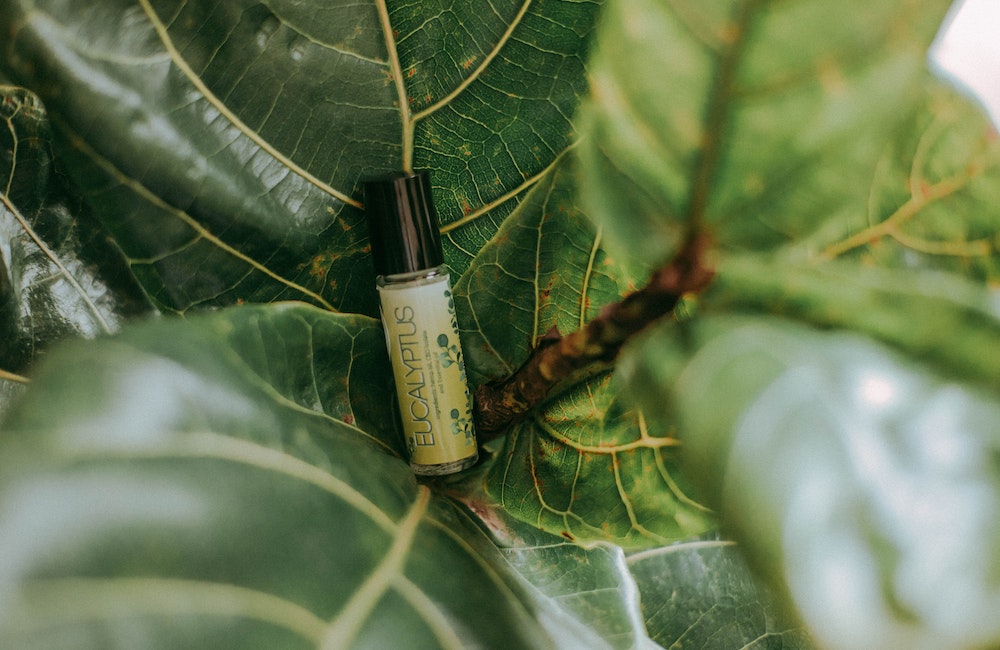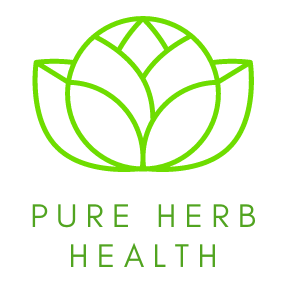Eucalyptus (Eucapyptus spp.) is a tall evergreen tree native to Australia and Tasmania but has been successfully introduced into 90 countries worldwide, since the 1850s, where it is now one of the most important and widely planted genera especially the E. globulus which is largely cultivated in the subtropical and Mediterranean regions, as well as in Nigeria.
Eucalyptus is a large genus of the Myrtaceae family, which includes 900 species and subspecies. Eucalyptus globulus Labill is an aromatic tree which commonly attains a height of 150-180 feet and a diameter of 4-7 feet. It has a straight trunk up to two-thirds of its total height and a well-developed crown.
The leaves are glossy, dark green, thick and leathery. They average in length from 1.5-2dm. The leaves of the older branches are narrowly lanceolate, often curved, alternate and hung vertically. The leaves of the young shoots are ovate, opposite, sessile, and horizontal.
The white flowers are solitary in the axils on flattened stalks. In ancient times the eucalyptus plant was used for several purposes by the aboriginal people, both as medicine and as food. E. globulus which has different vernacular names: Eucalyptus (in Bengali and Hindi); Blue-gum eucalyptus (in English) and Karpuramaram (in Tamil) is considerably used in the pulp industry, as well as for the production of eucalyptus oil on a commercial scale.
Chemical Composition
Here we will be considering the E.globulus spp which is a rich source of phytochemical compounds as:
- Flavonoids
- Alkaloids
- Tannins
- Propanoids
All the above are extracted from the leaves, stem, and root of the plant in various quantities depending on so many factors, especially on the geographical location of the plant. Eucalyptol is in particular, the principal and the most important constituent found in eucalyptus.
Despite the fact that more than 18 compounds were identified in eucalyptus oil, eucalyptol represents 79.85% of the total chemical composition. The eucalyptus oil also showed high content of oxygenated monoterpenes, which change between each eucalyptus species, with a potential variation in therapeutic properties.
The composition pattern of essential oil is affected by factors such as geographical location, and seasons, with consequent influence on biological activities. Eucalyptus oil is widely used in many countries like China, India, South Africa, Portugal, Brazil and Tasmania for perfumery, cosmetics, aromatherapy, phytotherapy products and food and beverage preparations.
General Use of Eucalyptus Plant
The plant has so many uses especially in medicine and food as initially used by the aboriginal people in ancient times. In recent times, the plant is used in forestry (timber, fuel, paper pulp), and environmental planting (water and wind erosion control) as a source of essential oil (medicinal, perfumery oil), for arts and crafts.

Health Benefits of Eucalyptus
Eucalyptus is believed to have a number of medicinal properties, although not all of them have been confirmed by research. The leaves are the most used part of the plant especially for tea and for essential oil which can be used for topical application and for inhalation. Below are some of the potential health benefits of eucalyptus:
- Antiseptic and Antibacterial
Traditionally, the eucalyptus plant was used as an antiseptic and for the treatment of respiratory tract infections. The herb is very helpful for colds, flu, sore throats and chest infections including bronchitis and pneumonia.
A research work by M.H. Salari et al. published in Clinical Microbial Infection 2006 Feb, “Antibacterial effects of Eucalyptus globulus leaf extract on pathogenic bacteria isolated from specimens of patients with respiratory disorders” suggests that eucalyptus oil may have antibacterial effects on pathogenic bacteria in the upper respiratory tract, including Haemophilus influenza, a bacteria responsible for a range of infections and some strains of streptococcus.
Interestingly, towards the end of the 19th century, eucalyptus oil was used in most hospitals in England to clean urinary catheters. Modern research is now starting to back this up.
The antiseptic and antibacterial effect is due to the dominant presence of eucalyptol. Other researchers showed significant activity of eucalyptus oil from different Eucalyptus species against various microorganisms, including human pathogen spoilage bacteria, candida albicans, Propionibacterium acnes and Pityrosporum ovale.
These studies supported the potential use of eucalyptus oil (specifically from E. globulus and E. bridgesiana) as a natural preservative for food and pharmaceutical industries, which may be useful as an alternative antimicrobial agent in natural medicine for the treatment of numerous infectious diseases.
- Antioxidant Properties
Eucalyptus leaves are a great source of antioxidants, particularly flavonoids, which protect your body from oxidative stress and free radical damage.
We know that the infection process frequently induces inflammation which determines the release of free radicals from the phagocytes. Antioxidants are molecules able to scavenge reactive oxygen species or free radicals, protecting cells from damage and death.
At the physiological level, these free radicals play important roles in energy production, synthesis of some biomolecules, phagocytosis, and cell growth in living systems. An imbalance between free radical generation and unfavourable antioxidant defence leads to oxidative stress, resulting in DNA or tissue damage.
There are natural and synthetic antioxidants. Synthetics may be saddled with problems of adverse effects hence the quest to get or discover suitable naturally occurring antioxidant molecules in foods. The main flavonoids in eucalyptus include catechins, isorhamnetin, luteolin, kaempferol, phloretin and quercetin. Diets rich in these compounds protect against certain cancers, heart disease and dementia.
Eucalyptus tea is a good source of these antioxidants and is generally recognized as safe in adults. However, children are at risk of eucalyptus toxicity and should get approval from healthcare professionals before drinking this tea.
- Anti-Inflammatory Activity
The aromatic constituents of eucalyptus oil are used as an analgesic, anti-inflammatory, and antipyretic remedies. Research suggests that eucalyptus oil eases joint pain. It contains many anti-inflammatory compounds, such as cineole and limonene, which act as pain relievers.
Many over-the-counter creams and ointments used to soothe pain from conditions like osteoarthritis and rheumatoid arthritis contain this essential oil. Eucalyptus oil may also be helpful to people experiencing back pain or those recovering from joint or muscle injury. Talk to your doctor first before use.

- Dental Care
The antibacterial and antimicrobial potential of eucalyptol in eucalyptus leaf extract has been harnessed for use in some mouthwash and dental preparations.
In dental health, eucalyptus leaf extract containing high amounts of ethanol and macrocarpal C – a type of polyphenol appears to be active in fighting bacteria that cause tooth decay or periodontitis (this is a common infection that damages the soft tissue and bone supporting the teeth. Without treatment, the alveolar bone around the teeth will gradually erode.)
Eucalyptus extract used in chewing gum may promote periodontal health.
- Relief of Cold Symptoms
Eucalyptus oil has been used for a long as a natural cold remedy and it is a common ingredient in cold and cough products. Research has been able to shown that eucalyptus oil has the ability to decrease mucus and expand the bronchi and bronchioles of your lungs.
The compound responsible for eliciting these actions is eucalyptol, also known as cineole, which is a compound found in the oil. Some other researchers have shown that eucalyptol relieves cold symptoms like cough frequency, nasal congestion, and headache by decreasing inflammation and mucus buildup.
It may also help to relieve asthma symptoms in persons that are not allergic. The oil can be inhaled through your nose and may provide some cold symptom relief. It is also found in many topical decongestants. However, eucalyptus oil can be toxic when ingested orally no matter how small.
- Treatment of Dry Skin
The topical application of the leaf extract has been found to boost skin ceramide production, water-holding capacity, and skin barrier protection. Ceramides are a type of fatty acid in your skin that is responsible for maintaining its barrier and retaining its moisture.
Those having low ceramide levels usually experience dry skin, dandruff or skin disorders like dermatitis and psoriasis. Eucalyptus contains a compound called macrocarpal A, which appears to stimulate ceramide production.
- Relaxation
Eucalyptus is believed to decrease symptoms of stress. In a study that was conducted it was discovered that there was a significant reduction in pre-surgery anxiety after inhaling eucalyptus oil. Eucalyptus contains eucalyptol, which has been found to possess anti-anxiety properties.
It was also discovered that inhaling eucalyptus oil for 30 minutes has been associated with lower blood pressure in patients after knee surgery, which suggests that it has a calming effect.
It is believed by researchers that eucalyptus oil may decrease the activity of your sympathetic nervous system (your stress response system) and increases the activity of your parasympathetic nervous system, which promotes relaxation.
- Natural Insect Repellant
The oil has been used for a long as a natural insect repellant, mainly due to its eucalyptol content. Research has shown that it effectively wards off mosquitoes and other biting insects for up to eight hours after topical application.
The more eucalyptol content of the oil, the longer and more effective it works as a repellant. In this case, the lemon eucalyptus oil from the lemon eucalyptus tree is an approved and powerful insect repellant. The oil may treat head lice but more research is needed in this regard.

How to Use Eucalyptus
- Tea: ground leaves are used in tea bags to make tea.
- Aromatherapy: A few drops of the essential oil, added to a diffuser or steam bowl can be used in aromatherapy.
- Topical: You can add a few drops of the oil into a carrier oil like fractionated coconut oil and apply it to your chest to ease congestion.
- Bug Repellant: You can use lemon eucalyptus essential oil to make a bug repellant.
Side Effects
NAHA (National Association for Holistic Aromatherapy) says that it is important to use “pure, authentic, and genuine essential oils” as some essential oils can be hazardous but those that are available commercially, from reputable sources are safe if handled appropriately. Note: It is not safe to take Eucalyptus oil orally because it is poisonous!
Some Side Effects May Include:
- Diarrhoea
- Nausea
- Vomiting
- Stomach upset
Some Signs of Eucalyptus Poisoning Include:
- Dizziness
- Feelings of suffocation
- Small pupils
Precautions
- Eucalyptus may interact with other medications and can impact the liver.
- Care should be taken when you want to use it on children as they are more sensitive to essential oil and also at a higher risk of toxicity. Seizures, difficulty in breathing, a lowered level of consciousness, and even death have been reported.
- Use should be avoided during pregnancy or when breastfeeding.
- The oil should not be applied directly to the skin if it is not diluted with a carrier oil like coconut oil or olive oil. The dilution should be between 1-5% eucalyptus oil to 95-99% carrier oil.
- It can cause irritation and burning sensation to sensitive skin areas like areas close to the eyes and therefore should not be applied too close to the eyes.
Conclusion
Eucalyptus leaves have so many benefits, especially the oil that is equally known as an essential oil contains some bioactive compounds that are responsible for some of its therapeutic actions. The leaf is considered safe to drink, but ingesting eucalyptus oil can be toxic in relatively low doses.
Always consult your healthcare provider before using eucalyptus oil or tea if you are on other medications like medications for diabetes, high cholesterol, acid reflux, and psychiatric disorders.

